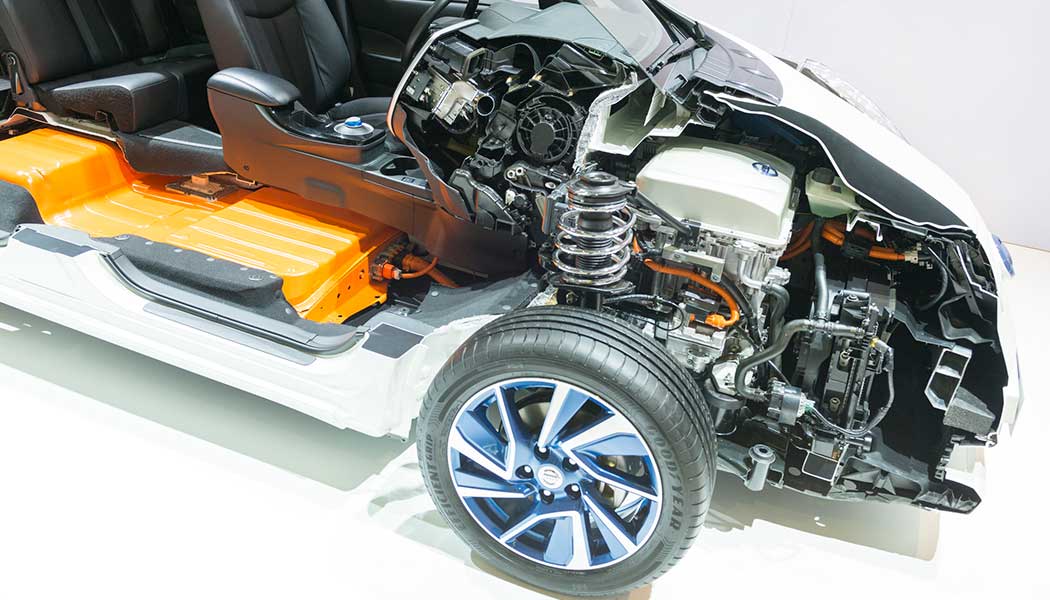Shifting Gears: How Electric Cars Re-define Auto Maintenance Norms

by AutoExpert | 19 October, 2023
The automotive tapestry is undergoing a vibrant transformation as electric vehicles (EVs) silently yet powerfully, make their presence felt on the roads. This shift from Internal Combustion Engines (ICE) to EVs isn't just about reducing carbon footprints but also reshaping the traditional automotive maintenance landscape.
At the heart of this change lies a common question: Do electric cars require oil changes?
:max_bytes(150000):strip_icc()/pouringoilinengine_GettyImages-1325588832_deepblue4you_Eplus-2824b534586c4d7e940268a4de28b42f.jpg)
The Lubricating Lifeblood of ICE Cars
In the realm of gas-powered cars, motor oil is the lifeblood that ensures the seamless operation of the engine. It provides the necessary lubrication to reduce friction among moving parts, keeping the engine cool and enhancing its longevity. However, over time, motor oil deteriorates due to high temperatures and pressure, becoming a host for contaminants - a residue from the combustion process. This necessitates regular oil changes, which involve draining the old oil, replacing the oil filter to guard against contaminants, and refilling with fresh oil.

Electric Cars: Bidding Adieu to Oil Changes
Electric vehicles, powered by silent, efficient electric motors, bid adieu to the conventional oil change ritual. Unlike their gas-guzzling counterparts, EVs don't house an engine with moving parts that demand lubrication. Instead, they rely on electric currents to create magnetic fields propelling the vehicle forward. This fundamental difference eradicates the need for oil changes, marking a significant dip in maintenance requirements and costs.

Beyond Oil Changes: The EV Maintenance Spectrum
While EVs escape the oil change drill, they bring along a new set of maintenance guidelines tailored to their unique architecture.
Battery Care: A pivotal part of EV maintenance revolves around battery care. Ensuring a charge between 20% to 80% can significantly enhance the battery's lifespan, while habitually crossing these thresholds could curtail it. Some EVs come equipped with battery coolant systems necessitating professional check-ups to ensure optimum performance.
Braking System: The innovative regenerative braking in many EVs recovers energy during deceleration, reducing the wear and tear on the brake system. This feature not only contributes to enhanced brake component longevity but also augments energy efficiency.
Tire Maintenance: The hefty batteries in EVs add to their weight, coupled with rapid acceleration, potentially leading to quicker tire degradation. Regular tire checks and rotations are imperative to ensure safe and efficient driving.

Hybrid Cars: The Middle Ground
Hybrid and Plug-in Hybrid Electric Vehicles (PHEVs), housing both electric motors and internal combustion engines, continue to require oil changes to maintain the health of their ICE components. This hybrid nature necessitates a blend of traditional and EV-specific maintenance practices.

The Road Ahead
As we cruise towards an all-electric automotive horizon, acquainting oneself with the evolving maintenance norms is essential. The transition to EVs not only epitomizes a leap towards eco-conscious driving but also a step towards simplified, lesser-demanding vehicle upkeep, making it a win-win scenario for both the planet and the pocket.

















